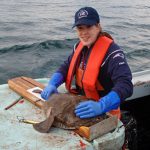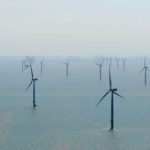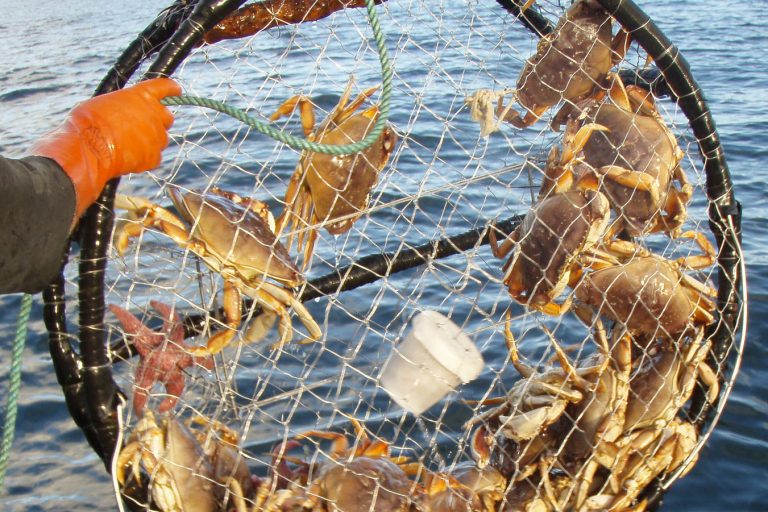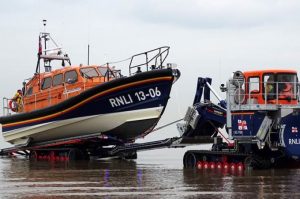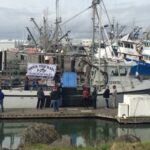Daily Archives: September 18, 2016
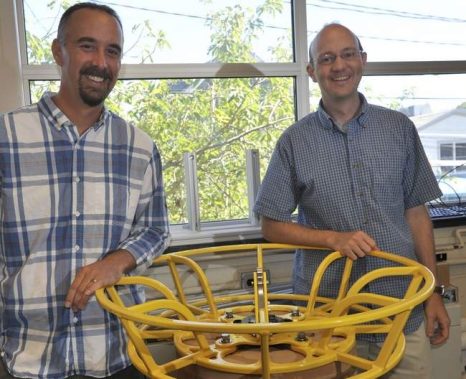
WHOI scientists/engineers secure funds to help commercialize their ropeless lobster pot to the public
Jim Partan and Keenan Ball had an idea for a way to deploy deep-water lobster traps that could help prevent whale entanglements and potentially reopen closed fishing areas off the New England coast. The Woods Hole Oceanographic Institution engineers even had a prototype in hand: a 340-pound, 42-inch-high spindle that would attach to lobster traps and keep fishing line underwater until the gear was ready to be retrieved. What they didn’t have was any funding to bring the spindle out of their their cramped Smith Laboratory workspace to do field testing, a vital step before they could put it on a fishing boat for a trial run. A few years ago, that might have been where their story ended. But thanks to a new initiative within the world-renowned oceanographic research nonprofit, the duo have not only some funding but some logistical support to help their vision for a so-called ropeless lobster trap get to sea. Read the story here, with two more images 11:53
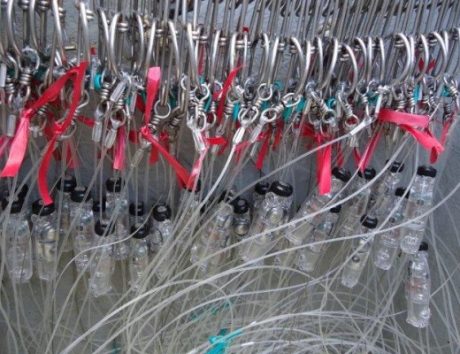
Seabirds off the hook
One of the worst by-products of commercial fishing is the killing of countless seabirds, including albatrosses, every year. British engineers have now come up with a device that could save up to 100 000 albatrosses, as well as petrels, shearwaters and other seabirds, every year. The device is designed to stop birds being caught on long-line fishing lines. It’s called a Hookpod, which is a weighted polycarbonate ‘pod’ that encases the hook until a pressure-sensitive sensor within it detects that the hook is under water. It then slides off the barbed hook. Read the rest here 10:41
John Sackton: Are the big NGOs winning the marine monument battle, but losing the war?
 Coinciding with the opening of the Our Oceans conference in Washington, D.C., last week, President Obama announced a new 5,000-square-mile marine monument on the southeast corner of Georges Bank, encompassing three submarine canyons and some seamounts further off the continental shelf. The map of the monument closely hews to the proposed map put out by Connecticut Sen. Richard Blumenthal in a letter to Obama in July. It follows a letter at the end of June from the six senators representing Massachusetts, Rhode Island, and Connecticut, along with a host of environmental non-governmental organizations, or NGOs. Read the op-ed here 10:04
Coinciding with the opening of the Our Oceans conference in Washington, D.C., last week, President Obama announced a new 5,000-square-mile marine monument on the southeast corner of Georges Bank, encompassing three submarine canyons and some seamounts further off the continental shelf. The map of the monument closely hews to the proposed map put out by Connecticut Sen. Richard Blumenthal in a letter to Obama in July. It follows a letter at the end of June from the six senators representing Massachusetts, Rhode Island, and Connecticut, along with a host of environmental non-governmental organizations, or NGOs. Read the op-ed here 10:04
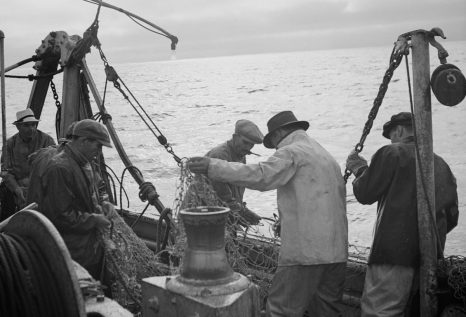
Gloucester fishermen – Trawling the treacherous seas of the North Atlantic 1900-1943
Incorporated in 1642, the Massachusetts town of Gloucester has been one of the centers of the North Atlantic fishing industry for centuries. And it’s seen more than its fair share of heartbreak. The town grew rapidly in the 1800s, as it provided a convenient launching point for trips to the fertile offshore fishing grounds of George’s Bank and the Grand Banks. Gloucester fishermen sailed in specially designed schooners optimized for speed and holding capacity to reach the banks, fill up on cod and other fish and return as quickly as possible. Many of these ship designs were unsafe and prone to capsizing in bad weather, however: Between 1866 and 1890, some 2,450 men and 380 schooners were lost at sea. Aid organizations eventually established funds and boarding houses to support the widows and families of lost fishermen. In the 20th century, Gloucester fishermen switched from schooners to motorized trawlers. Yet the profession remained hazardous. The vessels featured in these photos, the Old Glory and the Alden, both lost men in the 1940s. An excellent selection of photo’s can be viewed by clicking here 08:51

































